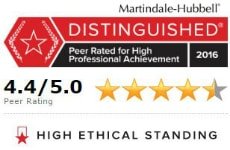What is “proof beyond a reasonable doubt” and why do we apply that standard of proof in criminal cases in Maine and throughout America? The latter question is best-explained by quoting the late United States Supreme Court Justice William J. Brennan from his majority opinion in the famous 1970 case In Re: Winship:
“Moreover, use of the reasonable-doubt standard is indispensable to command the respect and confidence of the community in applications of the criminal law. It is critical that the moral force of the criminal law not be diluted by a standard of proof that leaves people in doubt whether innocent men are being condemned. It is also important in our free society that every individual going about his ordinary affairs have confidence that his government cannot adjudge him guilty of a criminal offense without convincing a proper fact finder of his guilt with utmost certainty.” — In Re: Winship, 397 U.S. 358 (1970).
The former question is best answered by paraphrasing the jury instruction given by Maine trial justices (they vary slightly from judge to judge): Proof beyond a reasonable doubt means that you (jurors) are convinced that the allegation is almost certainly true. While the state does not have to prove guilt to a mathematical certainty, the state does need to prove the charge beyond and to the exclusion of all reasonable doubt.
In trials without a jury, “bench trials”, the same standard applies in all criminal cases. This standard differs from that which is applied in civil trials: proof by a preponderance of the evidence. The “O.J.” trials exemplify the practical variance. Simpson was acquitted of murder (X2) in his criminal case. Yet he was “found liable” (the civil law equivalent of a criminal conviction) in the wrongful death civil trial arising out of the same incident. A “preponderance” standard requires the factfinder to decide whether it is more likely than not that the allegation is true.
We do not apply a reasonable doubt analysis in the overwhelming majority of our daily and even our long term decision making processes. But jurors take a solemn oath to do so when summoned to court to sit in judgment of their fellow citizens. Our system of justice is only as good as the people who participate within that system. Jurors are the cornerstone of the American criminal justice system. Jurors have a difficult job. We ask, and trust that they will, leave their biases and predilections at the courthouse steps and apply a standard and method of analysis called “beyond a reasonable doubt” for all of the reasons that Justice Brennan so eloquently articulated over forty years ago. We ask that much of our jurors, indeed, because any one of them would expect the same from us were we to sit in judgement of them or their kin.
In this great country, we only trust the government so far as to accuse. It is very easy to accuse. In Maine, and throughout America, we place our faith in our fellow citizens to sit in judgment of our brothers and sisters, our fellow citizens. If you are summoned to jury duty, consider it an honor and consider the enormity of the responsibility that has been bestowed upon you as a citizen. Be true to your oath. If you do, you will allow citizens for the next 200+ years and beyond to continue to have faith in the jury system and you will continue to give life to Justice Brennan’s proclamation.
Disclaimer: This article is intended to provide general, not specific, information about Maine law. The publication of this article does not constitute an attorney-client relationship between the author(s) and the reader(s).





